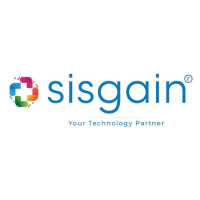Why Software Development in Healthcare Matters in KSA

Strong 8k brings an ultra-HD IPTV experience to your living room and your pocket.
In Saudi Arabia, the healthcare sector is undergoing a revolutionary transformation. As part of Vision 2030, the Kingdom has allocated billions toward digital healthcare initiatives—including the development and deployment of cutting-edge technologies. At the center of this transformation is custom healthcare software development—a vital tool empowering clinics, hospitals, and startups to modernize operations, enhance patient care, and meet increasing demands.
According to recent estimates by Statista, the digital health market in Saudi Arabia is projected to exceed SAR 10.5 billion by 2027. From AI-powered diagnostics to real-time remote patient monitoring, healthcare software is no longer a luxury—it’s a necessity.
In this blog, we’ll explore why software development in healthcare is critical for Saudi Arabia’s medical infrastructure, especially for small clinics, healthtech startups, and private practices looking to scale with precision.
The Rise of Digital Health in KSA
Saudi Arabia is experiencing a healthcare boom like never before. With a rapidly growing population, a rising prevalence of chronic conditions, and increased demand for quality care, the Kingdom’s Ministry of Health is aggressively pushing forward digital transformation initiatives.
One of the key components of this evolution is custom healthcare software development. These tailor-made digital systems are helping clinics and hospitals in KSA shift away from outdated paper-based processes and embrace smarter, automated workflows.
Custom-built software solutions offer unmatched flexibility. Unlike off-the-shelf tools, they’re designed to suit specific medical environments, compliance requirements, and cultural preferences. For example:
- Arabic language interface
- Secure data hosting in KSA
- Seamless integration with national healthcare systems
The outcome? Faster diagnoses, reduced errors, and a dramatic improvement in both patient satisfaction and operational efficiency.
The Growing Need for Digital Infrastructure in Saudi Clinics
Small and mid-sized clinics across Saudi Arabia often face unique challenges that large hospitals do not—limited resources, smaller staff, and higher patient expectations for digital engagement. Manual processes—like paper records, phone-based scheduling, or handwritten prescriptions—consume valuable time and increase the risk of costly mistakes.
Here’s where software development in healthcare becomes transformative.
Key Challenges Faced by Clinics Without Digital Systems:
- Inefficient appointment scheduling
- Long patient wait times
- Poor patient data management
- Difficulty accessing analytics and reports
- Delays in insurance claim processing
- How Software Development Solves These:
- Centralized patient information via EMR/EHR
- Smart dashboards for managing daily operations
- Online patient portals for better communication
- Real-time access to test results and reports
- Automated billing and payment processing
With Saudi Arabia’s emphasis on healthcare modernization, clinics that fail to invest in digital infrastructure risk falling behind—both in care quality and in competitiveness.
What is Software Development in Healthcare?
Software development in healthcare refers to the creation, customization, and deployment of digital platforms and mobile applications designed specifically for medical institutions. These systems can be as simple as an online appointment scheduler or as complex as a fully integrated hospital management system.
Common Types of Healthcare Software Solutions:
- Electronic Health Records (EHR)
- Telemedicine Platforms
- Remote Patient Monitoring (RPM)
- Medical Billing Software
- Patient Engagement Portals
- Clinical Decision Support Systems (CDSS)
In the Saudi context, most successful healthcare software projects include localization (e.g., Arabic UI), data protection compliant with local regulations, and cloud hosting on servers within the country.
Fun Fact: The adoption of EHRs in Saudi Arabia grew by over 25% between 2020 and 2023, driven by government incentives and the need for interoperability between care providers.
Benefits of Custom Software for Clinics and Startups
Whether you're running a dental clinic in Jeddah or launching a healthtech startup in Riyadh, custom healthcare software development offers benefits that far exceed generic or prebuilt software.
Top Advantages:
- Scalability: As your clinic grows, the software evolves with you.
- Data Security: KSA-compliant privacy standards ensure patient data protection.
- Cost Efficiency: Avoid expensive licenses and pay only for what you need.
- Workflow Automation: Cut down repetitive tasks like form entry or appointment confirmations.
- Improved Decision Making: Built-in analytics dashboards provide insights into patient trends, financial health, and performance metrics.
Example Use Case:
A startup offering chronic care management can use custom RPM software that tracks patients’ vitals remotely, sends alerts for abnormalities, and integrates data directly into the doctor’s dashboard.
Why KSA is Investing in Healthcare Software Systems
Saudi Arabia’s healthcare system is embracing digitization faster than many of its regional peers. The government’s strong commitment is evident in national programs like:
- Seha Virtual Hospital
- Wateen (National Blood Donation Platform)
- Mawid (Appointment Booking System)
All these programs leverage robust healthcare software systems to streamline user experiences and clinical workflows.
Major Drivers of Investment in Healthcare Software:
- Need for interoperable systems across cities and rural areas
- Reducing hospital overcrowding through virtual consultations
- Faster emergency response coordination
- Enabling data-driven public health policies
- Healthcare Software Systems Adoption in KSA
- Feature % Clinics Using (2024) Expected in 2027
- EHR Systems 68% 90%
- Telehealth Solutions 52% 80%
- Online Appointment Booking 70% 95%
- Digital Prescription Management 40% 85%
- Real-Time Patient Monitoring 35% 75%
As the government continues to invest in healthcare software systems, the private sector—especially clinics and healthtech startups—must adapt to stay compliant and competitive.
Healthcare Software Systems Adoption in KSA
Feature |
% Clinics Using (2024) |
Expected in 2027 |
EHR Systems |
68% |
90% |
Telehealth Solutions |
52% |
80% |
Online Appointment Booking |
70% |
95% |
Digital Prescription Management |
40% |
85% |
Real-Time Patient Monitoring |
35% |
75% |
Key Features to Look for in Saudi Healthcare Software
When selecting or developing healthcare software for the Saudi market, it’s important to consider functionality, localization, and compliance.
Here are some must-have features:
- Arabic Language Support: Ensures better usability among patients and staff.
- Cloud-Based Hosting: Offers flexibility, remote access, and secure backups.
- HIPAA + KSA Compliance: Essential for protecting sensitive health data.
- Integrated Payment Gateways: Facilitate smooth billing and insurance claims.
- AI-Powered Tools: Offer predictive analytics for proactive patient care.
- Role-Based Dashboards: Different views for doctors, admins, nurses, and patients.
- Telemedicine Modules: Essential for reaching patients in remote areas.
The inclusion of these features not only enhances patient experience but also reduces administrative workload—enabling clinics to focus more on delivering care.
Case Studies: Success Stories from KSA
Dental Chain in Riyadh:
A 3-location dental practice implemented a custom appointment and EHR system, reducing no-shows by 42% and increasing revenue by 30% in six months.
Healthtech Startup in Dammam:
The company launched a telehealth platform integrated with wearable data. Within a year, they partnered with over 20 clinics and closed a SAR 3M funding round.
Private Clinic in Jeddah:
By deploying a cloud-based healthcare software system, the clinic automated its billing and reporting—cutting admin time by 50% and increasing patient flow.
These examples underline how strategic use of healthcare software can turn small operations into scalable, high-performance businesses.
Choosing the Right Partner for Software Development
Partnering with the right software development company in KSA is critical to the success of your healthcare digital journey. Whether you're a clinic owner or a healthtech founder, the stakes are high—your vendor must understand compliance, localization, and scalability.
Checklist for Choosing a Vendor:
- Do they offer custom healthcare software development tailored to your niche?
- Can they build or integrate healthcare software systems that meet KSA regulations?
- Do they offer post-launch support, updates, and security patches?
- Do they have experience in healthcare-specific UI/UX design?
- Can they help you scale to mobile platforms or cloud-based environments?
Working with a team that specializes in healthcare software solution architecture ensures your project will be both future-ready and regulation-compliant.
Final Thoughts: A Digital-First Future for Saudi Healthcare
In a country as ambitious and forward-thinking as Saudi Arabia, the healthcare industry is primed for disruption—and software development in healthcare is at the forefront of this shift.
For small clinics, embracing digital tools means offering modern patient experiences and operating with greater efficiency. For startups, it’s the gateway to innovation, scalability, and investment opportunities.
Whether you’re looking to optimize patient care, reduce operational costs, or innovate within the healthcare ecosystem, investing in a healthcare software solution is no longer optional—it’s essential.
Frequently Asked Questions (FAQ)
Q1: What are the benefits of custom healthcare software development in KSA?
Custom solutions offer tailored features for Arabic-speaking staff, localized compliance, and flexibility to scale your clinic or startup operations.
Q2: Is healthcare software secure in Saudi Arabia?
Yes. Reputable vendors follow HIPAA, local MOH guidelines, and host on Saudi-based cloud servers for data protection.
Q3: How long does it take to develop a healthcare software solution?
Depending on features and scale, development can take anywhere from 6 weeks to 6 months.
Q4: Can startups afford to build their own healthcare software?
Yes. With modular solutions and SaaS pricing, startups can start small and expand as they grow.
Q5: Are healthcare software systems used only by big hospitals?
Not anymore. Clinics, pharmacies, labs, and even home care providers are now leveraging software systems for efficiency.
Note: IndiBlogHub features both user-submitted and editorial content. We do not verify third-party contributions. Read our Disclaimer and Privacy Policyfor details.


